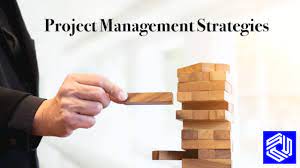10 Strategies for Effective Project Management
Project management is a multifaceted discipline that requires a combination of skills, tools, and strategies to ensure successful outcomes. Whether you’re overseeing a small team project or a large-scale initiative, effective project management is crucial for meeting goals, staying on schedule, and delivering high-quality results. In this article, we’ll explore ten strategies that contribute to effective project management.
Define Clear Objectives and Scope
A foundational step in project management is establishing clear objectives and defining the project scope. Clearly articulate what the project aims to achieve, the expected deliverables, and the boundaries of the project. This sets the stage for a focused and well-directed effort, preventing scope creep and ensuring that everyone involved understands the project’s purpose.
Create a Detailed Project Plan
A comprehensive project plan serves as the roadmap for the entire project. Break down the project into tasks, assign responsibilities, and establish timelines. Use project management tools and methodologies, such as Gantt charts or Kanban boards, to visualize tasks and track progress. A detailed project plan enhances organization, provides clarity, and facilitates effective coordination among team members.
Build a Competent Project Team
The success of a project relies heavily on the capabilities and collaboration of the project team. Assemble a team with the necessary skills and expertise to fulfill project requirements. Ensure that team members have a clear understanding of their roles and responsibilities. Foster a collaborative and communicative team culture to promote effective information flow and problem-solving.
Effective Communication Strategies
Communication is at the heart of successful project management. Establish clear communication channels and protocols from the outset. Regularly update stakeholders on project progress, milestones, and any changes to the plan. Foster open communication within the project team, encouraging the sharing of ideas, concerns, and feedback. Clear and transparent communication helps prevent misunderstandings and keeps everyone aligned with project goals.
Risk Management and Contingency Planning
Identify potential risks early in the project and develop a comprehensive risk management plan. This plan should outline potential risks, their impact on the project, and strategies for mitigation. Additionally, establish contingency plans for unforeseen events to ensure that the project can adapt and continue progressing even when faced with unexpected challenges.
Embrace Agile Project Management
Agile project management is an iterative and flexible approach that is particularly effective for complex or rapidly evolving projects. Embrace Agile principles, such as iterative development, frequent feedback loops, and adaptive planning. This approach allows for quick adjustments based on changing requirements, leading to a more responsive and dynamic project management process.
Utilize Project Management Software
In the digital age, project management software is a valuable asset for streamlining tasks and enhancing collaboration. Choose a project management tool that aligns with your team’s needs, offering features such as task tracking, document sharing, and real-time collaboration. These tools centralize project information, improve visibility, and facilitate efficient project monitoring.
Implement Effective Time Management
Time management is a critical aspect of project success. Establish realistic timelines for each project phase and task. Encourage task prioritization and set deadlines that align with project milestones. Regularly monitor progress against timelines and be proactive in addressing any delays or bottlenecks promptly. Effective time management ensures that the project stays on schedule and meets deadlines.
Encourage Continuous Improvement
After completing a project or a project phase, conduct a thorough review to identify areas for improvement. Encourage team members to share insights, reflect on what worked well and what could be enhanced, and apply these lessons to future projects. Embracing a culture of continuous improvement ensures that each project becomes an opportunity for learning and refinement.
Celebrate Achievements and Recognize Contributions
Recognizing and celebrating achievements, both big and small, is essential for maintaining team morale and motivation. Acknowledge the hard work and contributions of team members when milestones are reached. This positive reinforcement fosters a sense of accomplishment and encourages a high level of commitment to the project’s success.
Conclusion
Effective project management requires a holistic approach that encompasses careful planning, strong leadership, and ongoing evaluation. By implementing these strategies, project managers can create an environment conducive to success, enhance collaboration among team members, and increase the likelihood of delivering projects on time and within scope. dynamic, the ability to employ these strategies becomes increasingly vital for achieving optimal project outcomes.

